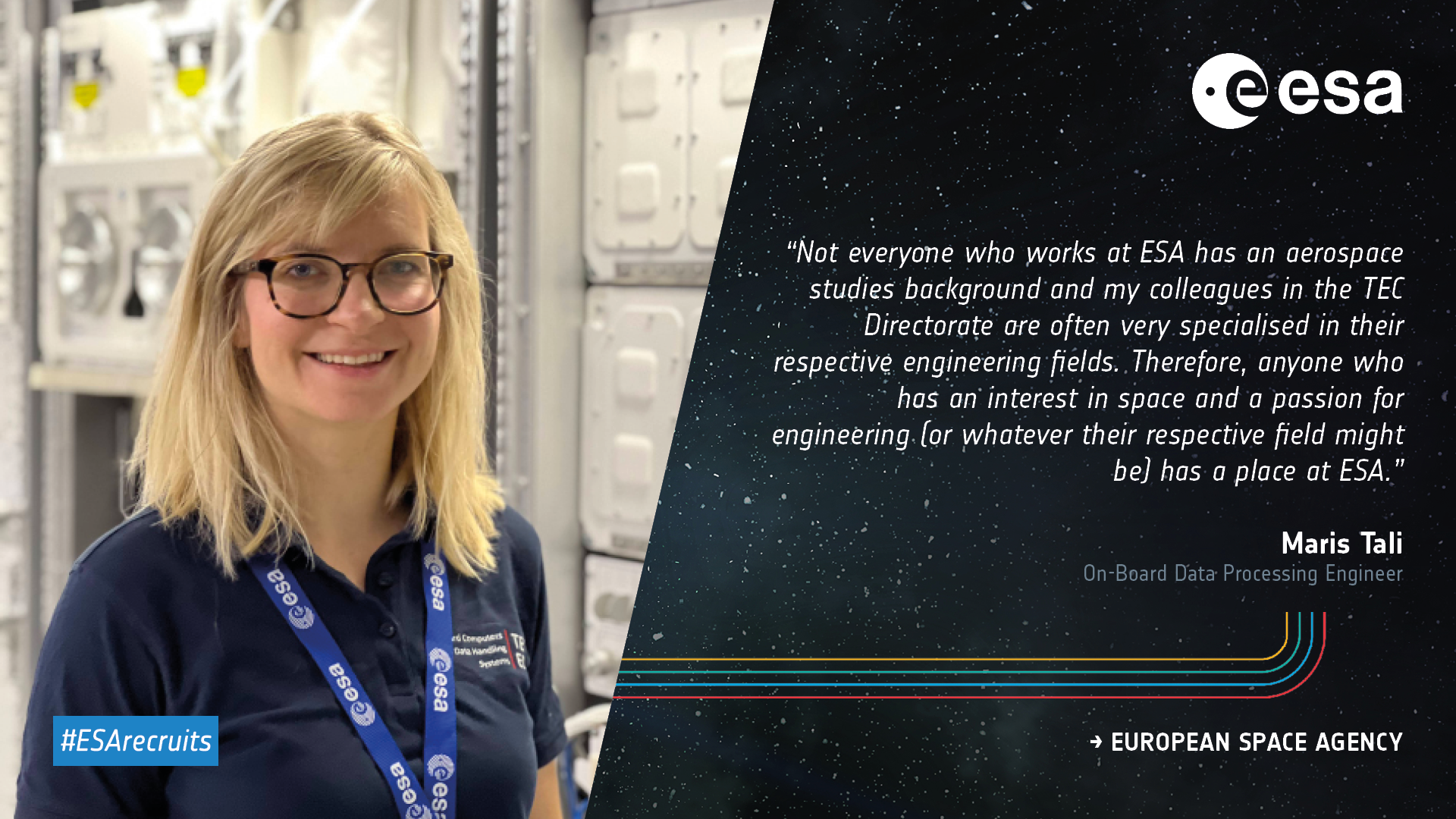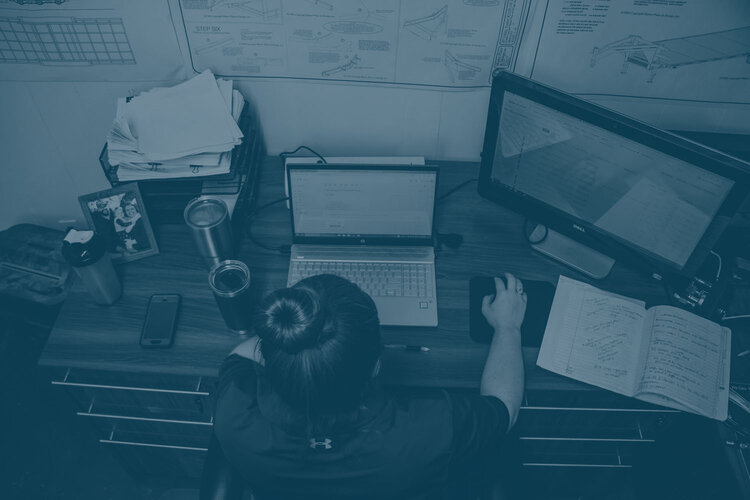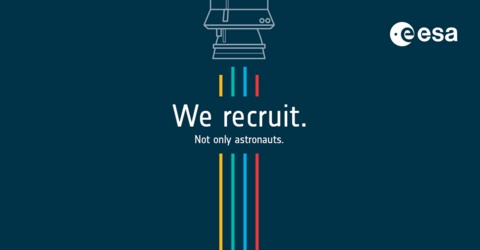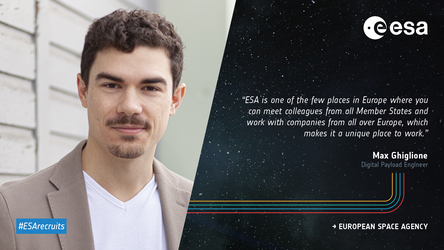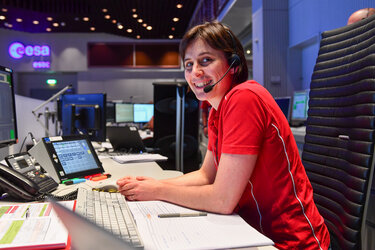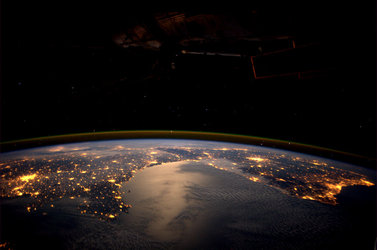ESA Careers Spotlight
With ESA’s campaign to recruit over 300 new colleagues this year underway, you might be curious to know what life at ESA is like. We are bringing you interviews with people from across the Agency to share their first-hand experiences of life at ESA. We’d like to introduce Maris Tali, an On-Board Data Processing Engineer based at ESTEC discussing her career path, her work at ESA and her experience as one of the top 100 finalists for the ESA astronaut selection!
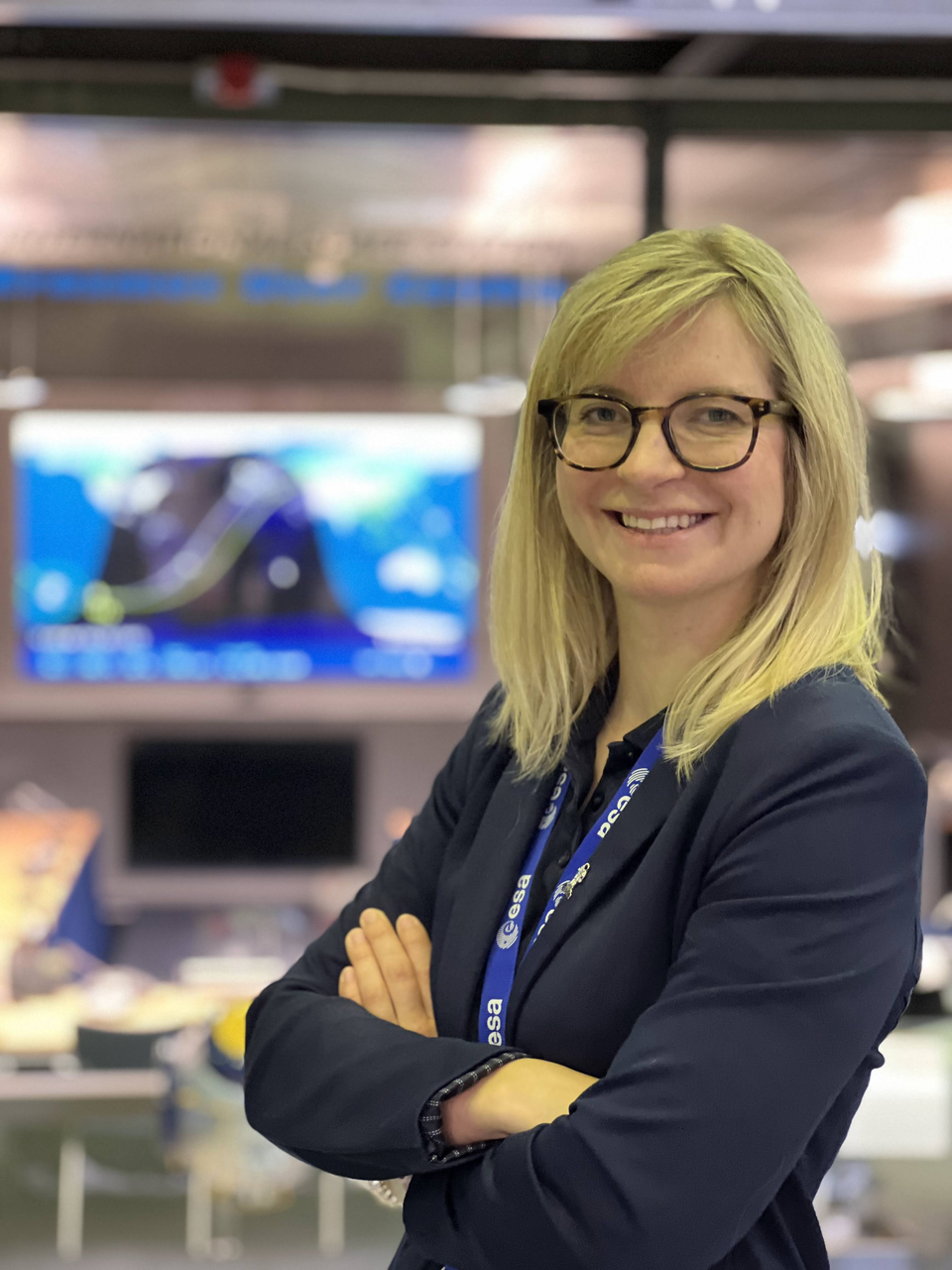
What is your position at ESA and what does it involve?
I am an On-Board Data Processing Engineer working in the On-Board Computer and Data Handling Section in the Technology Department at the European Space Research and Technology Centre (ESTEC) here in the Netherlands. My position involves working on R&D activities related to on-board data processing hardware and providing expert support to missions in this field. On-board data processing is a rapidly developing field: the amount of data processing considered for future missions has increased and new cutting-edge processing methods are being researched and gradually adapted, such as AI for on-board data processing. This constant change and need for innovation make my work interesting and varied.
What was your career path up to now?
My background is in electronics engineering and radiation effects in electronics. I completed my MSc in electronics engineering at the university of Oslo, where my final project was designing and building the electronic front end for a particle detector. This led me to CERN where I started my PhD in radiation effects on electronics as an NPI Student (now OSIP co-funded research) in collaboration with ESA and the University of Jyvaskyla. After completing my PhD I wanted to go back to industry, so I joined a renewable energy start-up as embedded electronics engineer. After a few years I saw a great opportunity as a Research Fellow in the Technology, Engineering and Quality Directorate (TEC) at ESA in the section where I currently work. Since my work at ESA is very varied, I feel that my experience in both a large international organisation and a start-up environment has been a great asset.
Did you always aspire to work in the space industry?
My PhD research focused in part on the radiation environment around Jupiter and assessing its effects on electronics. This glimpse into the space world made me appreciate the complexity and the engineering challenges related to designing space missions, which in the end led me to apply to ESA. Not everyone who works at ESA has an aerospace studies background and my colleagues in the TEC Directorate are often very specialised in their respective engineering fields. Therefore, anyone who has an interest in space and a passion for engineering (or whatever their respective field might be) has a place at ESA.
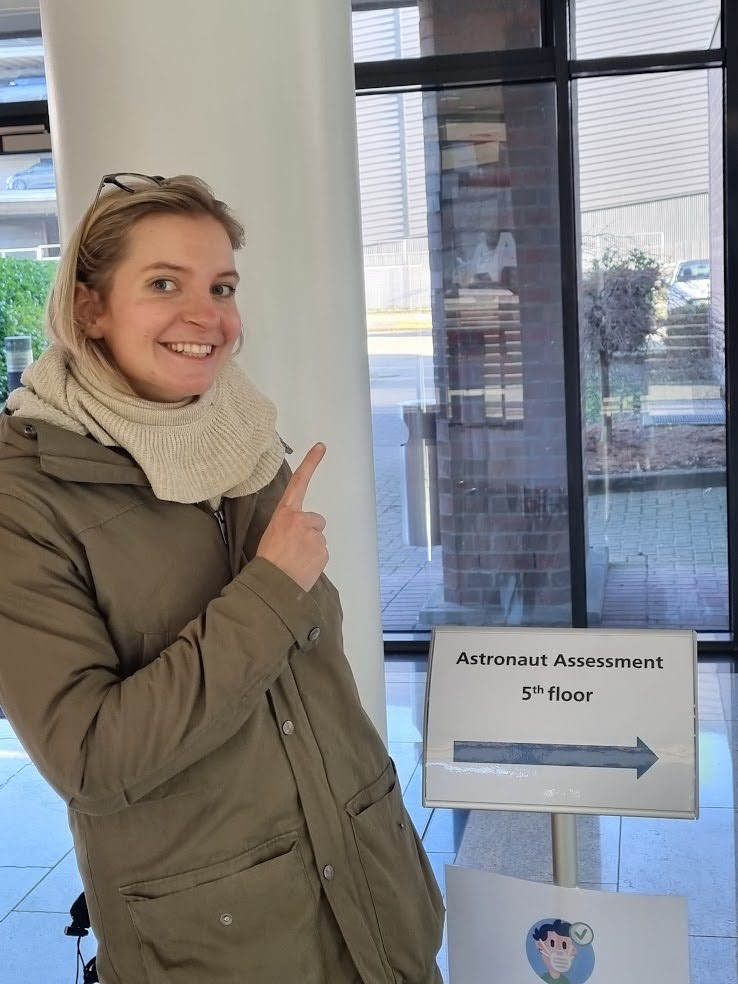
What motivated you to apply to ESA?
At ESA, you have access to a large amount of expertise in various fields related to space and it is therefore a great place to develop yourself professionally. The research and development (R&D) work that is being done by Research Fellows for the TEC Directorate is based on what is being done for ESA missions or used by companies in the European space industry, so their research has real tangible benefits for both the Agency and the industry, which is one of the unique benefits of working here. Therefore, when I saw the vacancy for the Research Fellow position related to my field of interest on the job portal, I decided to apply.
Which part of your job do you find most exciting?
The part of my job that I enjoy the most is the interactions with various companies that are part of the European space field. Both the big integrators and smaller start-ups bring specific expertise and have their own challenges that need to be solved, so the technical work for the different R&D activities is incredibly varied, which keeps the day-to-day work interesting. Having close interactions with so many different players allow us to stay up to date with the latest developments and to have an overview of the field, which in turn helps us to identify potential gaps here in Europe.
Can you share an interesting story about one of your projects?
During my PhD at CERN, a large part of my work was performing radiation tests on electronics and this sometimes included running test campaigns with external institutions like ESA. One of the first AI accelerator chips that was flown in space by ESA – the Myriad 2 – was radiation tested at CERN and I was one of the organisers of the test. It’s a nice connection between my previous and current and work and shows how tightly intertwined the European scientific institutions are and how there are many collaboration projects happening all the time. ESA and CERN have a collaboration agreement and there is some interesting work being done in that framework, of which radiation testing of electronics is just a small part.
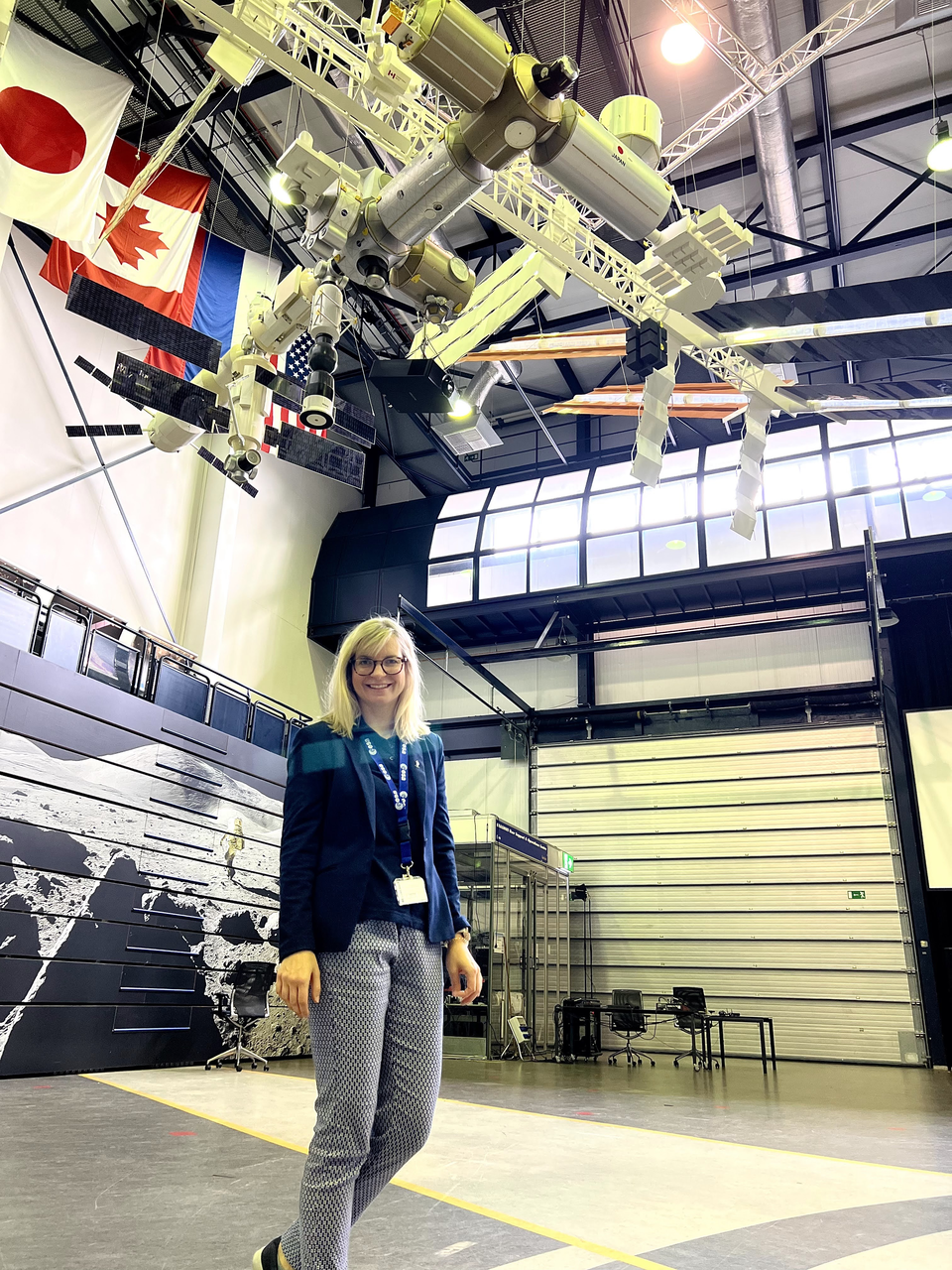
What is the highlight of your ESA experience so far?
One of the highlights was visiting the various testing facilities and labs at ESTEC. If one is lucky there is a chance to see the full-size satellites being tested at the huge clean room at the test centre. A lot of our work is being performed at the office so getting to see the full outcome of all the effort first-hand gives meaning to the work and is very motivating.
Can you tell us about your experience of the ESA 2020 Astronaut selection and making it to the final 100 candidates?
One of the other highlights of my time here at ESA was applying to the ESA Astronaut selection. Although working at ESA was not a requirement or even an advantage it was great to share the excitement of the process with my human spaceflight enthusiast colleagues. I made it through the first four rounds and got to the last 100 candidates. Although I did not make it all the way to the end of the selection it was still an amazing experience, especially because I met many of the current class of astronauts as I was participating in the selection and testing days with them. The current class of astronauts very recently started their training, so I wish them all the best for their career!
What is a little-known fact about your area of expertise that you would like to share?
I think a little-known fact is that although traditionally satellites did not process the data from their various instruments on board (they mostly just relayed it back to Earth), this is starting to change in certain areas. Even large institutional missions are now considering various options for making the satellites more intelligent: reducing the time it takes to react to certain events or to optimise the amount of data that needs to be sent back to Earth. The hardware and different processing options have developed rapidly in recent years, so one can do relatively complex processing tasks using low-power processing chips.
If you could be a part of any ESA project/mission/team (past, present or future), which would it be and why?
I have always wanted to participate more in projects with the human spaceflight teams. There are some common hardware developments that I also get to work on, so I am excited for the coming years. It is possible that this work will lead to some interactions with the new astronaut class which I am also very excited about. Historically, some of the work of my PhD project was related to the JUICE mission and I would have loved to be involved in the hardware design process. The spacecraft must survive the incredibly harsh radiation environment of Jupiter and its moons, which provided the designers with very tough engineering challenges.
Do you get the chance to collaborate with teams or departments other than your own?
I collaborate with colleagues from other teams and departments daily. This is the great advantage of working in the Directorate of Technology, Engineering and Quality. We provide expert support to other projects, so we get to meet people from every other directorate. It is also a great learning experience because completing a project is a big team effort and we all have an opportunity to learn from experts from other fields.
What accomplishment (team or individual) from your time at ESA so far are you most proud of?
During my time as a Research Fellow, two of my colleagues and I completed lab projects that demonstrated running different AI algorithms on various space grade and commercial hardware. This was to show the feasibility and the limitations of existing space hardware running AI. Additionally, we were able to show that even processors with a moderate performance that would today be considered outdated are able to run many interesting AI models. This allowed us to use a lot of space grade hardware and cutting-edge commercial hardware.
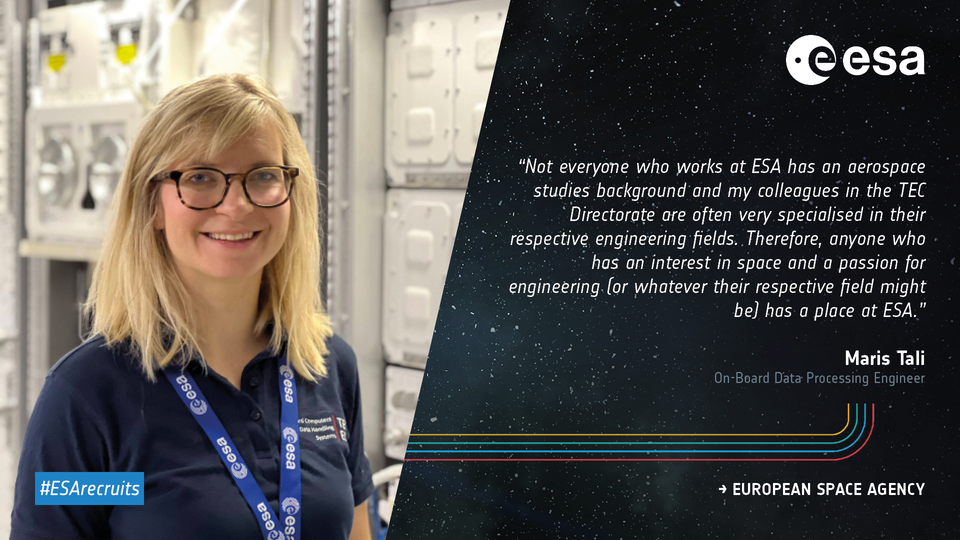
ESA recruits – and not only astronauts!
In 2023, ESA will be recruiting over 300 new colleagues to join our teams and support our mission of the peaceful exploration and use of space for the benefit of everyone. Vacancies across different areas will be published throughout the year, so if you are ready to take the next step in your career, this is your chance! Explore our vacancies and apply today. You can also set up a job alert to receive a notification when a position matching your profile is published.


